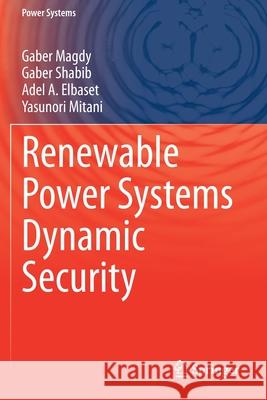Renewable Power Systems Dynamic Security » książka
topmenu
Renewable Power Systems Dynamic Security
ISBN-13: 9783030334574 / Angielski / Miękka / 2020 / 165 str.
Renewable Power Systems Dynamic Security
ISBN-13: 9783030334574 / Angielski / Miękka / 2020 / 165 str.
cena 462,91
(netto: 440,87 VAT: 5%)
Najniższa cena z 30 dni: 443,35
(netto: 440,87 VAT: 5%)
Najniższa cena z 30 dni: 443,35
Termin realizacji zamówienia:
ok. 16-18 dni roboczych.
ok. 16-18 dni roboczych.
Darmowa dostawa!
Kategorie:
Kategorie BISAC:
Wydawca:
Springer
Seria wydawnicza:
Język:
Angielski
ISBN-13:
9783030334574
Rok wydania:
2020
Wydanie:
2020
Numer serii:
000239383
Ilość stron:
165
Waga:
0.27 kg
Wymiary:
23.39 x 15.6 x 1.04
Oprawa:
Miękka
Wolumenów:
01
Dodatkowe informacje:
Wydanie ilustrowane











